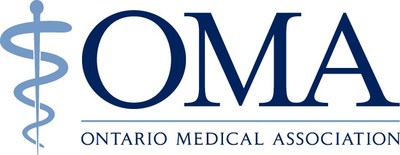Experts Offer Insights Into the Mental Health Effects of COVID-19 at Virtual Conference
TORONTO, June 7, 2020 /CNW/ - Leading Canadian and U.S. experts in disaster psychiatry coached health-care providers and first responders on how to recognize and manage COVID-19-related mental health trauma, including in children and those who have lost loved ones.

More than 900 people from 19 countries attended the webinar organized by the Ontario Medical Association and Disaster Psychiatry Canada on Saturday.
"Disasters are usually local and sometimes regional, but COVID-19 is an unprecedented modern era disaster causing global mental trauma," OMA President Dr. Samantha Hill said. "The OMA is proud to host this international forum that examines the significant mental health effects of this terrible epidemic and how to provide assistance to those who are struggling."
This was the OMA's third annual Psychiatric Dimensions of Disaster conference. The concept was developed by Dr. Frank Sommers, a child survivor of the Holocaust from Hungary and former President of the Ontario District Branch of the American Psychiatric Association.
"As many participants here today said, getting through COVID-19 is like running a marathon. It is very important to pace ourselves and remember to stay connected on an emotional level. Social support will help us all to take care of each other, and ourselves," Dr. Sommers said.
Dr. Janet Ellis, Director of Psychosocial Care in Trauma at Sunnybrook Health Sciences Centre in Toronto, said that people who lost loved ones during COVID-19 are especially vulnerable to acute stress because of the lack of social supports and religious and social rituals. She said it takes about six months to process and mourn a death and stressed that people shouldn't be told to pull themselves together or think positively, or that their loved one wouldn't want them to grieve.
Dr. Frederick J. Stoddard, Jr., Chief of Psychiatry Emeritus at Shriners Hospitals in Boston, said that preschool children are attuned to and affected by their parents' emotions. "Try to stay calm around them," he urged. "Turn off the TV, computers and smart speakers when they are around. They will hear things or see images that are potentially scary. Try turning handwashing or wiping surfaces a playful game."
Children in Grades 1 to 6 can understand more about infectious diseases so parents can explain that the COVID-19 virus is like the cold or flu virus, and that by staying home from school or work, people are preventing the spread of COVID-19. This age group may also become clingy and demanding, which is a way of expressing fear. He suggested this is not a time to tell them to "grow up" even if the behaviour is frustrating. "They may need more time with you – reading to them, watching a TV show together, drawing or playing," said Dr. Stoddard.
The first Psychiatric Dimensions of Disaster conference took place on April 21, 2018, two days before the Toronto van attack that killed 10 people and injured 16. Several Toronto-based attendees used their newfound skills to help victims on the scene and in the aftermath.
About the OMA
The Ontario Medical Association represents Ontario's 43,000 plus physicians, medical students and retired physicians, advocating for and supporting doctors while strengthening the leadership role of doctors in caring for patients. Our vision is to be the trusted voice in transforming Ontario's health-care system.
SOURCE Ontario Medical Association
